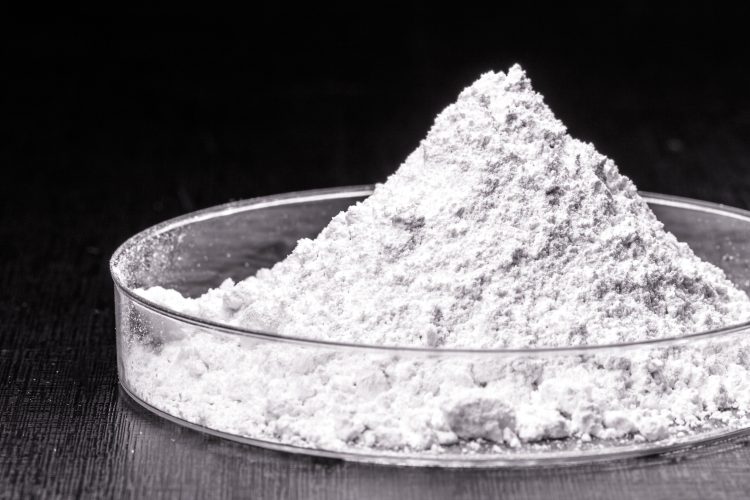Is this food additive linked to an increased risk of coeliac disease?
- Like
- Digg
- Del
- Tumblr
- VKontakte
- Buffer
- Love This
- Odnoklassniki
- Meneame
- Blogger
- Amazon
- Yahoo Mail
- Gmail
- AOL
- Newsvine
- HackerNews
- Evernote
- MySpace
- Mail.ru
- Viadeo
- Line
- Comments
- Yummly
- SMS
- Viber
- Telegram
- Subscribe
- Skype
- Facebook Messenger
- Kakao
- LiveJournal
- Yammer
- Edgar
- Fintel
- Mix
- Instapaper
- Copy Link
Posted: 23 February 2024 | New Food | No comments yet
French and Canadian researchers suggest E551, a common food additive, may increase the risk of coeliac disease in those predisposed to the auto-immune condition.


E551 is also known as silicon dioxide
Researchers from France and Canada have completed research which suggests that one food additive in particular could lead to an increased risk of coeliac diseases – an auto-immune condition which is on the rise around the world.
E551, more commonly known as silicon dioxide, is a powder composed of nanoparticles (ie particles < 100 nm in size). It serves as an anti-caking agent in an array of dry and powdered foods, including soups, spices, cereal-based infant formula, instant coffee, cocoa mix, and freeze-dried pasta. It can be found among the ingredients of over 2,600 processed foods worldwide. It prevents the formation of lumps, thus preserving food taste, texture, and stability.
The research team, from the National Research Institute for Agriculture, Food and Environment (INRAE) and McMaster University in Canada, also say that E551 is widely used as an essential processing aid in various food transformation processes. In such situations, it does not appear in the ingredients list on the packaging, even if it is present in the final product. According to the team, we are exposed to low doses of E551 on a daily basis via the food we consume.
The study conducted sought to find out whether this level of exposure could affect the intestinal immune system. More specifically, it explored the impact on oral tolerance to dietary proteins. The latter is a crucial nutritional function, in which a tolerogenic response is induced in the intestine to block inflammatory immune reactions against the proteins we consume. This system is operational from birth. Any disruptions can lead to the development of food sensitivities, which can take the form of allergic reactions (eg to peanuts, cow’s milk, fish, shellfish, eggs) or autoimmune conditions, such as coeliac disease.
Coeliac disease is a genetically linked autoimmune disorder that causes people to react to gluten, a protein in cereals such as wheat, rye, and barley. Symptoms include intestinal inflammation, abdominal pain, and diarrhoea. Those afflicted may experience severe weight loss and nutritional deficiencies. The prevalence of coeliac disease is on the rise globally, but the reasons for this trend are opaque.
In this study, researchers exposed mice to E551 on a daily basis for three months. They observed that the animals demonstrated lower oral tolerance to dietary proteins and, in tandem, greater levels of intestinal inflammation. The researchers also examined the underlying mechanisms. They found that exposure to E551 reduced the number of intestinal immune cells responsible for producing the anti-inflammatory compounds needed to prevent gut reactivity. Using mice that express the coeliac disease risk gene, the researchers then discovered that daily exposure to E551 worsened levels of the inflammation markers associated with the disease.
Taken together, the researchers claim these results indicate that chronic exposure to E551 via dietary sources could promote the development of coeliac disease in people genetically predisposed to the condition.
Related topics
Related organisations
ational Research Institute for Agriculture, Food and Environment (INRAE), McMaster University








